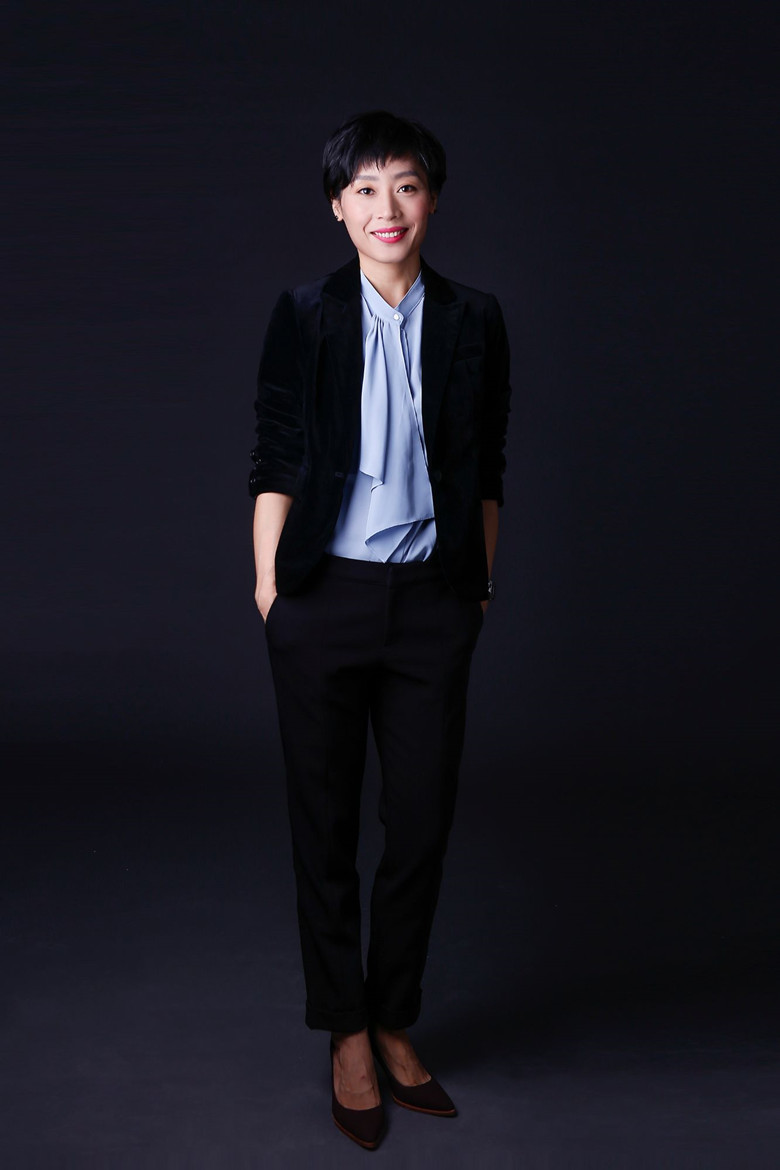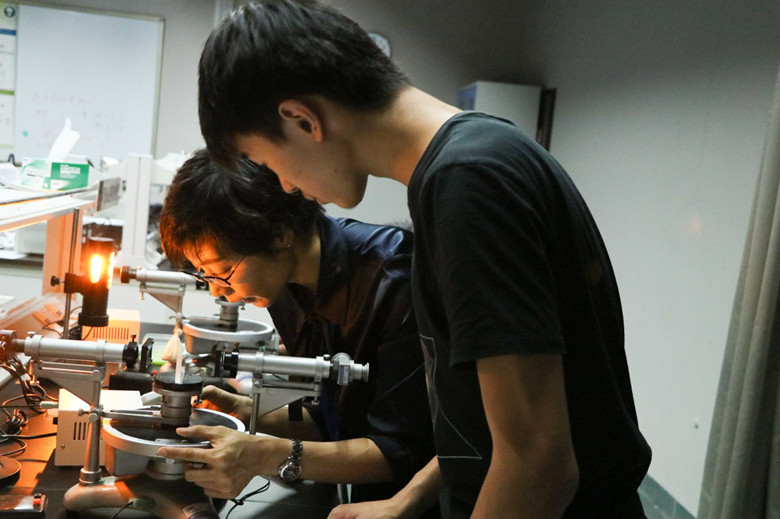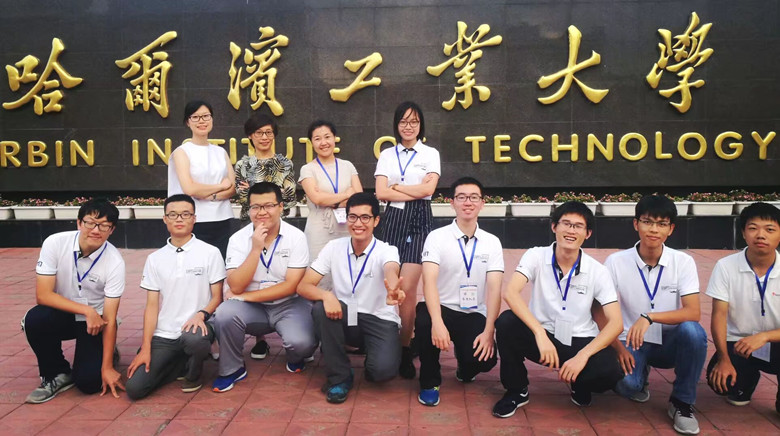Researchers make breakthrough in magnetic geometry-induced quantum geometry and nonlinear transport
2025-06-06SUSTech hosts IOP Forum with President of Institute of Physics Sir Keith Burnett
2025-03-26Researchers discover unusual thermal conductivity in high-symmetry single crystals
2025-03-26New efficient method detects quantum temporal correlations
2025-03-26Researchers explore unconventional magnons predicted by spin space groups
2025-03-25As with any good science and engineering university, SUSTech students are constantly challenged with theoretical work but also practical exercises. There is one professor on campus who is particularly fond of putting their experimental skills to the test - Lab instructor Yang Jun - who was recently awarded the “Outstanding Teaching Award” by SUSTech for 2017.
The Outstanding Teaching Award for Non-Tenure-Track Faculty recognizes excellence in teaching by non-tenure-track teaching faculty at SUSTech who have made a significant commitment to students at SUSTech.

Dr. Yang got her PhD degree from the Harbin Institute of Technology and joined SUSTech in August 2012, taking charge of teaching 6 courses in the Department of Physics. Along with her colleagues, she designed and implemented new experiment-centered modules as well as new equipment to meet the high educational requirements of SUSTech, and completed a series of university physics experiment projects. She also participated in the complilation of the “University Physics Experiment” teaching materials and was responsible for the "Innovation Platform" of the Physics Laboratory. In 2014, she organized and led a team of SUSTech students to the "American University Physics Competition" where they were awarded the first prize, a first for Chinese participants.
The joy of being with students
In the early morning, the campus is quiet, except for a few birds chirping. Dr. Yang walks across from the office building to her classroom. She wants to write the theoretical exercises on the blackboard for the students who are going to class immediately, and also organize the teaching equipment of the demonstration, and prepare in advance to save a little time in class.
As soon as she enters the classroom, she pulls the curtains and says: "This experiment section is for spectrometry, to measure the minimum deflection angle, which will have an undeniable impact on the experiment". The students don’t seem convinced and remain in a state of slight confusion, so she breaks it down for them, explaining each key elements of the formulas on the board and using the equipment to illustrate her words. In turn, the students start operating it themselves to practice.
Yang Jun admits that the university where she graduated from left a profound impact on her. “I graduated from an engineering college, and compared to science colleges, we get more hands-on practical experience. Whether it was for my Masters or PhD degree, I always paid extra attention to the experimental parts of my courses” she explains. She goes on to state that this is in line with the SUSTech educational style, and requires strict conditions and methodology. “But for me the happiest thing is to learn and exchange with my students - not only can we professors gain satisfaction from transferring our knowledge, we can also be surprised to learn and gain fresh insights from their incredible vitality”.

When competition shapes learning dynamics
When we asked her about the 2017 Outstanding Teaching Award, she beams with pride. She says that she believes in the power of working as a team, and referencing her achievements in the American University Physics Contest, the National College Students Physics Contest and the Guangdong University Students' Physics Experiment Design Contest which are all very high-level competitions. Preparing for such a contest is time-intensive, and can take up to one year. Even during holidays Yang and her team spent most of their time in the labs with their students. But as she always says, hard work pays off. The team she led into the American University Physics Competition received the first prize, and they did so also for a number of regional events.
"It’s really fantastic to participate in top physics competitions because although our university rankings are not high, the students are able to continue to produce fresh ideas even when they are under pressure, and they work on their problem-solving skills, which are an important manifestation of the active thinking of SUSTech students. Usually they always get very good results. They can sharpen their practical abilities, get feedback from expert panels, and benchmark themselves, which gives them a sense of accomplishment and increases their interest in the field.
When one of her team members was sick and in hospital in 2016, Yang didn’t hesitate to help him cover the medical expenses. During the next competition he was one of the key members, and often talked about Dr. Yang with the other members, telling them how great she was. She says that she is very picky when choosing who to work with, and carefully asks applicants about their hometown, university, life and future plans.

To learn smart? Follow some rules before you rush
She’s been a part of the SUSTech family for 5 years now, and has always upheld strict standards for her students, but within those experimental and teaching rules, students are free to play, without restrictions. She says that many students are open-minded, but sometimes they don’t follow the rules closely enough and that can compromise not only the results of the experiments, but also the safety of themselves and their classmates. So she explains to them that "the rules are not set to restrict you, but to protect you. Every student has to be responsible for himself and others".
She tells her class of freshmen “Don’t rush your work, and don’t worry if others are going faster than you. If you are not familiar with something, just slow down, take it step by step and be patient. Impatience can be very counter-productive, and with armed with enough patience, I’m sure you will be able to overcome any difficulties you meet”.
Text: Student News Agency Wang Hao
Photo: Wang Kaiqiang Han Xin
Visuals: Qiu Yan
Translated by: Jeremy Welburn